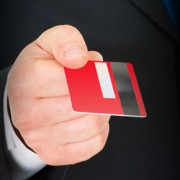Become Credit Card Savvy
Make no mistake. Credit cards are designed to keep you in debt forever unless you are wise to them.
How? The repayment terms are designed to encourage you to pay the minimum monthly payment only, thus opening the door for outrageous rates of interest to be charged (up to 20% and higher) on the bigger portion that you don’t repay on time. Next time you look at your statement, you’ll notice that the Minimum Monthly Payment and the Due Date are together and quite prominent. However, you should be looking at the closing balance on your statement. That is what you should be paying back each month.
It is interesting to note that banks and card providers are only required to assess whether you can pay the minimum monthly payment, commonly 2% of your credit card balance, not the entire amount borrowed. No doubt change will come but it is slow.
So if you want escape the credit card trap you must use cards as a Transactor, not a Revolver.
Just in case you foolishly considered yourself a valued bank customer, Transactor and Revolver are terms used in banking parlance for people who pay back their balance before the expiry of the interest free period each month, and those who don’t.
Transactors pay off their closing balance each month by the due date and hence pay very little for the use of the card. On the other hand, banks and card providers make a fortune out of Revolvers. If you are a Revolver, you don’t (or can’t) pay back your closing balance in full at the end of the month; which means you are paying interest on outstanding borrowings at a rate of up to 20% or more, depending on your card.
And then there’s the Constant Revolvers. This is bank-speak for Revolvers who are unable to pay back the balance month after month, and sometimes year after year. With a rapidly growing card balance, they tend to be in debt forever. It is often the case that new cards are sought to pay off the existing ones and credit card debt balloons out of control.
Meanwhile, interest on interest grows rapidly while ever you continue to maintain an unpaid balance each month. For every month that you allow your card debt to revolve to the following month you interest is rapidly compounding at very high rates. As for your interest free period, that is lost in the month that you don’t repay the closing balance and in the following month as well. It becomes irrelevant until such time as you pay off your balance and continue to do so each month.
If you are in the Revolver group, then you are more than likely struggling financially and suffering stress. The irony is that you and the other 40% or so of Australian households who fall into this category, form the customer group that contributes most to the banks profits and share price.



